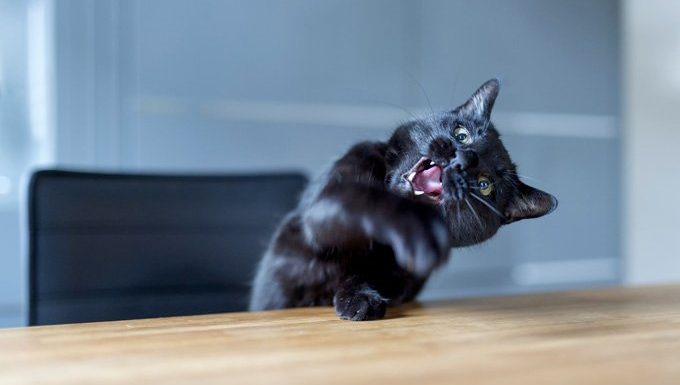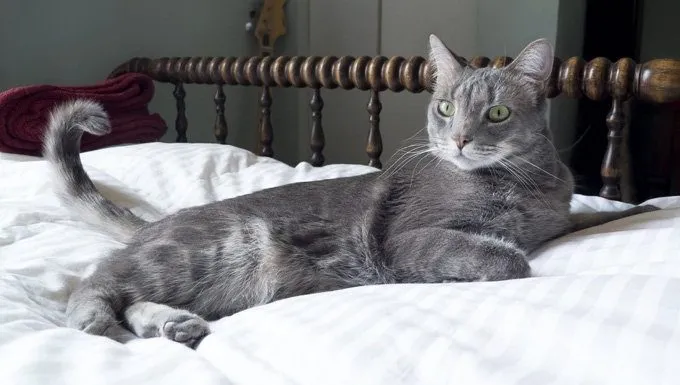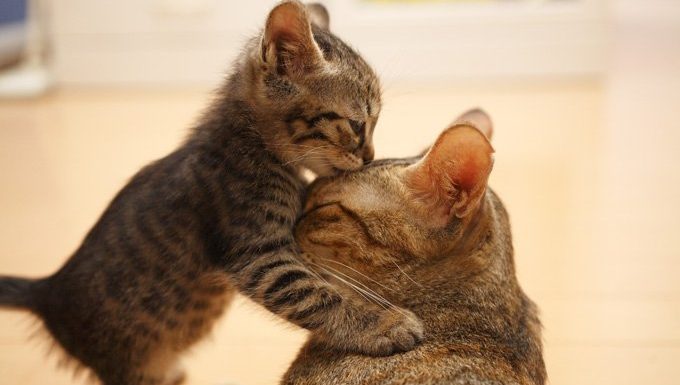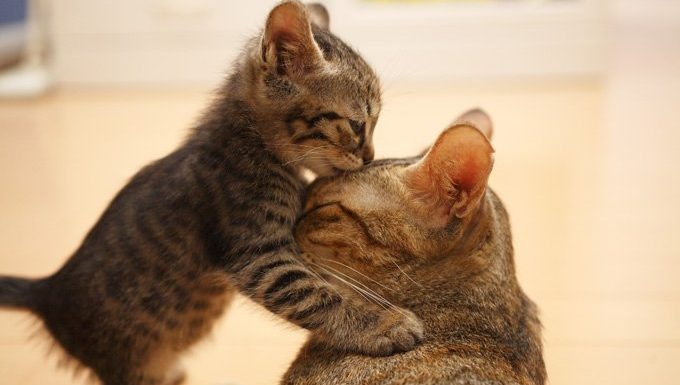
A cat’s body language tells you a lot about what they’re thinking or intend to do next. Sure, cats meow, hiss, and make lots of vocalizations to communicate, just like we humans vocalize when we talk. However, cats also rely on their full bodies to communicate, too.
Humans aren’t always good at reading these feline signs, so learning them will help you understand your cat better. As pet parents, we’re responsible for knowing our cats’ needs and wants, so we have to be able to know what they’re saying.
Tail twitching and chin rubbing are two ways cats communicate with body language. Here’s what they might mean.
What Does Tail Twitching Mean?

As with dogs, the tail can signal a cat’s intentions. If a dog wags their tail, it often means they’re happy or excited. This is not always true with a cat, and they’ve perfected various tail twitches to carry different messages.
An upright tail that flips forward over the cat’s back is in a neutral, welcoming position. The cat is happy to see you. This posture can also signal indecision. The cat hasn’t decided what their next move will be.
If the cat’s tail quivers and they dance on their back feet, they’re giving you an ecstatically happy greeting. Cats use this same posture when they want to mark a place by urine spraying it. Luckily, there’s no spraying when this is a greeting.
Twitching the tail tip while holding it low and straight is often associated with hunting behavior. During hunting, the body is in a crouched position ready to pounce. The crouch and moving tail tip indicate an intense focus on prey.
Tail twitching can also be associated with aggression. The more the tail is moving back and forth, the less happy the cat is. Rapid tail movement means they’re issuing a threat to another cat or human.
An upright, “bottle brush” tail indicates the cat feels threatened and is being defensively aggressive. The hair on their spine also stands up giving them a “Halloween cat” profile and making them seem larger.
This is a ploy designed to make an aggressor go away. If you see a stray cat with a rapidly twitching or moving tail, it’s best to stay away from them for your own safety.
Sometimes cats will twine their tail around a person’s legs in a bid for attention or food. It’s also a marking technique to say, “This person is mine.”
What Does Chin Rubbing Mean?

Another aspect of feline body language is chin rubbing or head butting. These actions make cat parents smile because they signal a happy, affectionate cat.
By using this behavior, the cat is marking their person, another cat, or anything else in their territory as belonging to them.
Cats have glands on different parts of their bodies that secrete tiny amounts of pheromones. Pheromones are vital to cat communication.
A person can’t smell the scent, but another cat can, and this marking behavior is like leaving messages for other cats wherever they go. A cat uses pheromones to attract a mate, define territory, promote comfort, and let other cats know where they’ve been.
Cats may not be able to speak our human language, but they sure can say a lot just with their body language.
Does your cat talk to you with body language? Do you instinctively know how your cat is feeling? Let us know in the comments below!









